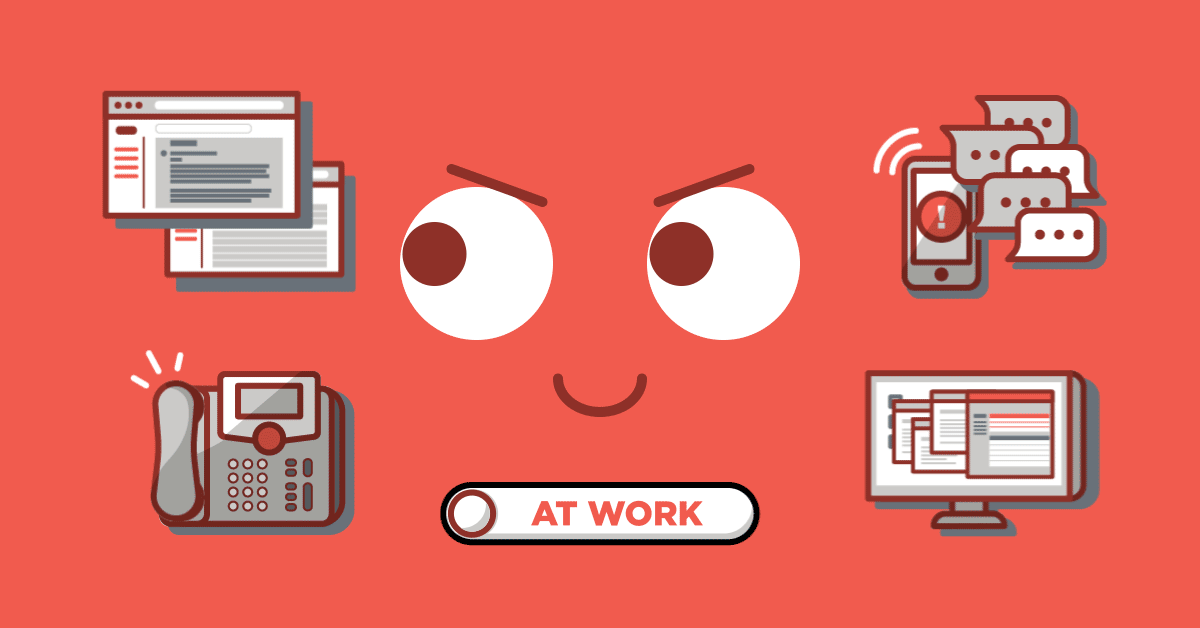
This article comes to us from our partner TTISI.
Have you ever been in this situation? You’re at dinner with your family, trying to enjoy the moment when inspiration strikes for that great new workplace idea that you’ve been trying to uncover for weeks. Or maybe, as you’re laying in bed prepared to sleep, you think about that thing you forgot to do at work, filling you with fear and angst.
Truth is, work thoughts don’t just happen on work hours. We think about our jobs whether we are actively on the clock or not. The key is having the ability to create boundaries so that when you are not at work, you can enjoy your down time. Completely unplugging from work gives you a chance to recharge to be sharp for the next work day, as well as allowing you to give your family and other life goals the time and attention they deserve.
Hubspot’s Caroline Forsey recently published an article that speaks to how to turn work off when you’re not on the clock. Forsey proposes five keys to help you stop thinking about work when you’re not at work, helping you to regain your sanity, one improved thought at a time.
- Write down what’s on your mind. You’ve got this thing you’re thinking about, and it’s consuming you, weighing you down. Writing down this idea can allow you to let it go and help free your mind. Once it’s on paper, you no longer need to carry it in your mind, lifting the weight immediately. This is the perfect solution when you have one specific thought circling in your mind, draining your energy. Writing the item down helps you focus on the present.
- Play a video game. A fancy scientific term known as cognitive absorption describes the deep focus needed to play video games at a high level, effectively distracting your mind from wandering elsewhere. Have fun and change your mindset at the same time.
- Use Progressive Muscle Relaxation techniques. Focusing on your body takes your thoughts off of work. The process is very simple: focus on specific areas of your body and direct your energies to those specific parts, one at a time.
Use this helpful worksheet to make sure you are achieving your work/life balance.
After getting comfortable, take deep breaths in your nose and out your mouth, each about five seconds in length. When you inhale, tighten the muscles in the body part you’re focusing on at that moment. Start with your feet and work your way up (or vice versa). As you exhale, relax that body part in question and begin to think about the next body part and repeat the process until you’ve reached your head. End with one final 5-second breath to release the last of the stress.
- Distract yourself. Sounds easy right? Well, it can be if you try hard enough. Listen for sounds in the room, such as a ticking clock or the hum of an air conditioner or heater. Focus on that noise. What does it sound like? The more you focus on it, the less you are thinking about work.
Possible distractions are countless, but you can try counting tiles on the ceiling or floor, lines in the wall, feel the texture of your clothing, or count the trees or tree branches outside your window. While it might sound like mindless busy work, the whole key is to create a momentary distraction that breaks the repetitive thought process about work in your mind. Once you’ve broken the negative thoughts, feel free to resume your daily activities.
- Just say STOP! If you vocalize this - or any - word, it will immediately bring your brain into the present, effectively shifting it out of non-productive mode. It’s the human equivalent to hitting the reset button. Once you’ve snapped out of your relentless thought patterns, immediately pursue a different thought path. One helpful suggestion is to think about your current surroundings. Ask yourself:
- Where are you now?
- What do you like about where you are now?
- What do you want to do or think about right now?
- What is something that makes you happy?
None of those things should revolve around work since, well, you are not at work. Simple reflection on things that make you happy and things that make you feel good is a great remedy for changing your mindset.
Conclusion
It’s ok to enjoy and be committed to your work. Most people with good work ethics want to do the very best they can at their job. Just remember you also have a life outside of work, and that life should not be compromised because of your never-ending quest to be the best you can be in your career. The key is to have a balance, and with balance, you can be successful for the long haul.







